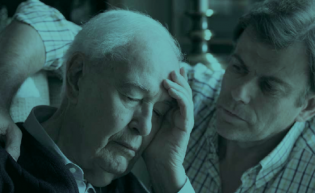Caregiver Distress Rising in B.C. – Report
Prince George, B.C. – British Columbia continues to have one of the highest rates of caregiver distress in Canada.
That according to a new report issued today by the Office of the Seniors Advocate entitled: Caregivers in Distress: A Growing Problem.
Seniors Advocate Isobel Mackenzie said the report is an update to a report issued two years ago. She added supports and services are not keeping pace with the growing need.
Findings of the report include:
- In 2015/16, 31 per cent of clients had a primary caregiver in distress. This is a seven per cent increase from the 2015 report.
- Over this period, the actual number of primary caregivers identifying as distressed increased by over 1,000, a 14 per cent increase in the actual number of caregivers in distress.
- The number of home support clients accessing Adult Day Programs decreased by 5 per cent and the number of days delivered to these clients decreased by 2 per cent.
- The average hours of home support per day per client over 65 decreased by 5 per cent, signalling less intensive service.
Mackenzie said the higher rate of primary caregiver distress is “a disturbing trend when we think of the daily reality for all the sons, daughters, spouses, neighbours and friends who are dedicating hundreds of hours caring for loved ones.”
The report focused on the caregivers of the people receiving publicly subsidized home support in B.C. as it’s the only subset of the caregiving community where measurable data using detailed health care assessments are available.
Mackenzie estimated there are approximately one million unpaid caregivers in B.C. – about 25 per cent of the province’s population.
She said the paid value of that care is worth about $3.5 billion and noted those providing the care are feeling it.
“Having a break for even a few hours can make a huge difference in the lives of caregivers who are feeling exhausted and overwhelmed,” said Mackenzie. “For some caregivers, time alone to refocus and recharge is something very precious and we need to recognize that it can make the difference between feeling strong enough to carry on with caring commitments, or giving up entirely.”
The report includes a few recommendations including increasing service levels of, and access to, respite and adult day programs; providing education and training to informal caregivers; and increasing supports and services such as psychosocial connections.
Is Mackenzie hopeful the report will make a difference?
“I am hoping that health authorities will take this information and it will fan out to the front lines where we will see an increased emphasis on allocation of home support hours,” she said.
“We will see a recognition of respite and an authorization of those respite hours. That we will see a move forward in increasing these Adult Day Program spaces and re-organization of respite.”

Comments
Comments for this article are closed.